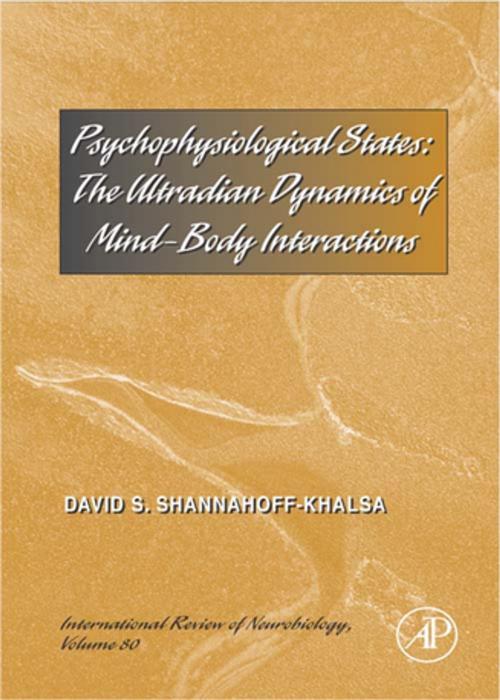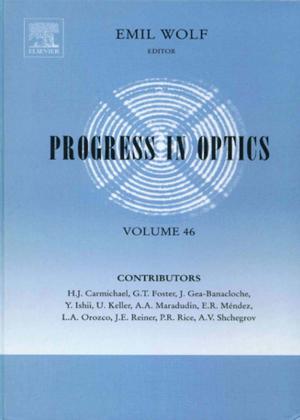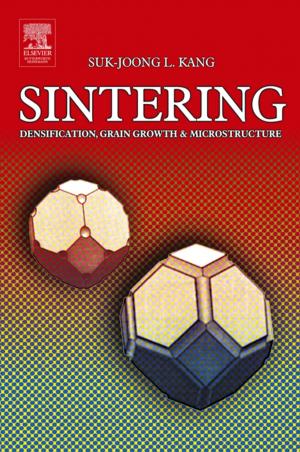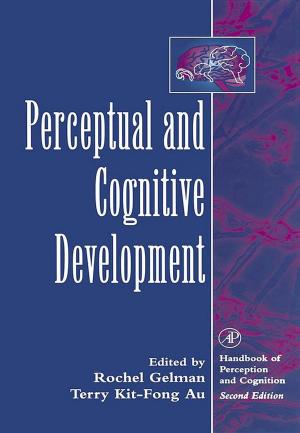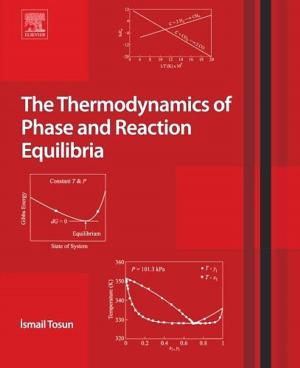Psychophysiological States
The Ultradian Dynamics of Mind-Body Interactions
Nonfiction, Health & Well Being, Medical, Specialties, Internal Medicine, Neurology, Psychology, Neuropsychology| Author: | David S. Shannahoff-Khalsa | ISBN: | 9780080555102 |
| Publisher: | Elsevier Science | Publication: | November 8, 2007 |
| Imprint: | Academic Press | Language: | English |
| Author: | David S. Shannahoff-Khalsa |
| ISBN: | 9780080555102 |
| Publisher: | Elsevier Science |
| Publication: | November 8, 2007 |
| Imprint: | Academic Press |
| Language: | English |
Our understanding of psychophysiological states are now more broadly defined by the inclusion of the lateralized ultradian rhythms of the autonomic and central nervous systems (ANS and CNS) that play a key regulatory role in mind-body states. These neural rhythms are a unique step in the evolution of the nervous system that have mostly been ignored or missed in our understanding of physiology, mental activities, brain rhythms, and in the treatment of psychiatric disorders. The multivariate physiological experiments reviewed in this book provide a new “big picture for how the body’s major systems (ANS, CNS, neuroendocrine, cardiovascular, fuel-regulatory, gastrointestinal, immune) are regulated, integrated, and coordinated by the ANS via the hypothalamus during both waking and sleep. This discovery has implications for psychiatrists, psychologists, stress physiologists, cardiologists, sleep researchers, neuroscientists, neuroendocrinologists, cognitive scientists, and those interested in performance, anxiety, depression, schizophrenia, autism, and addictive and impulse control disorders. This book includes the translational neuroscience aspect of this discovery, including implications for vagal nerve stimulation studies.
- This book is a study in Lateralized rhythms and Ultradian rhythms and their context in the ANS-CNS, a very new field
- Implications of these rhythms in Anxiety, Depression and Schizophrenia will be explored
- The book will present theories of possible causes for the assignment of causal mechanisms of these lateralizations
- The reader will understand the Nasal Cycle, the rhythmic; alternating side-to-side fluctuation in nasal airflow which is regulated by the ANS
- Unilateral Forced Breathing techniques will be discussed
- Vagal nerve stimulation and its effects will be discussed
- Yoga breathing techniques are analyzed and theorized scientifically
Our understanding of psychophysiological states are now more broadly defined by the inclusion of the lateralized ultradian rhythms of the autonomic and central nervous systems (ANS and CNS) that play a key regulatory role in mind-body states. These neural rhythms are a unique step in the evolution of the nervous system that have mostly been ignored or missed in our understanding of physiology, mental activities, brain rhythms, and in the treatment of psychiatric disorders. The multivariate physiological experiments reviewed in this book provide a new “big picture for how the body’s major systems (ANS, CNS, neuroendocrine, cardiovascular, fuel-regulatory, gastrointestinal, immune) are regulated, integrated, and coordinated by the ANS via the hypothalamus during both waking and sleep. This discovery has implications for psychiatrists, psychologists, stress physiologists, cardiologists, sleep researchers, neuroscientists, neuroendocrinologists, cognitive scientists, and those interested in performance, anxiety, depression, schizophrenia, autism, and addictive and impulse control disorders. This book includes the translational neuroscience aspect of this discovery, including implications for vagal nerve stimulation studies.
- This book is a study in Lateralized rhythms and Ultradian rhythms and their context in the ANS-CNS, a very new field
- Implications of these rhythms in Anxiety, Depression and Schizophrenia will be explored
- The book will present theories of possible causes for the assignment of causal mechanisms of these lateralizations
- The reader will understand the Nasal Cycle, the rhythmic; alternating side-to-side fluctuation in nasal airflow which is regulated by the ANS
- Unilateral Forced Breathing techniques will be discussed
- Vagal nerve stimulation and its effects will be discussed
- Yoga breathing techniques are analyzed and theorized scientifically
